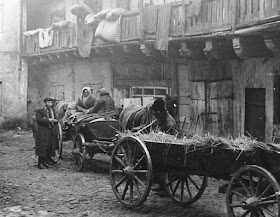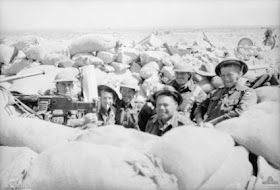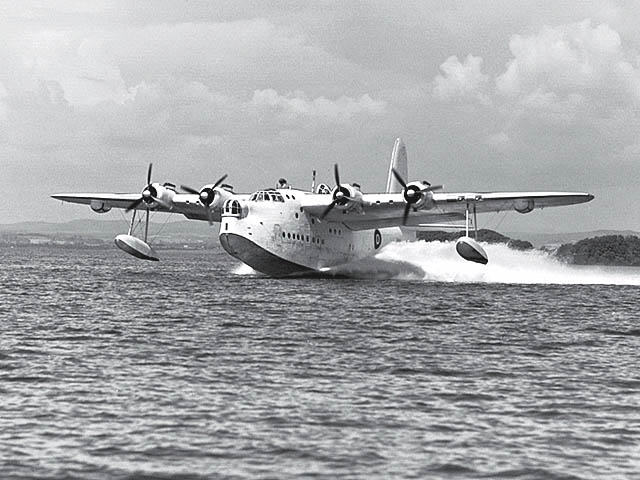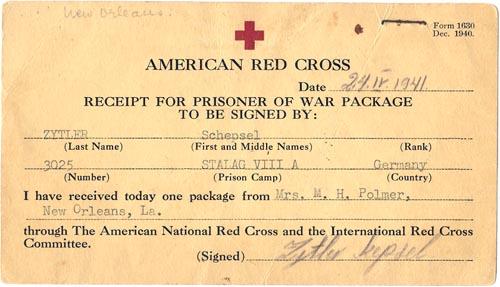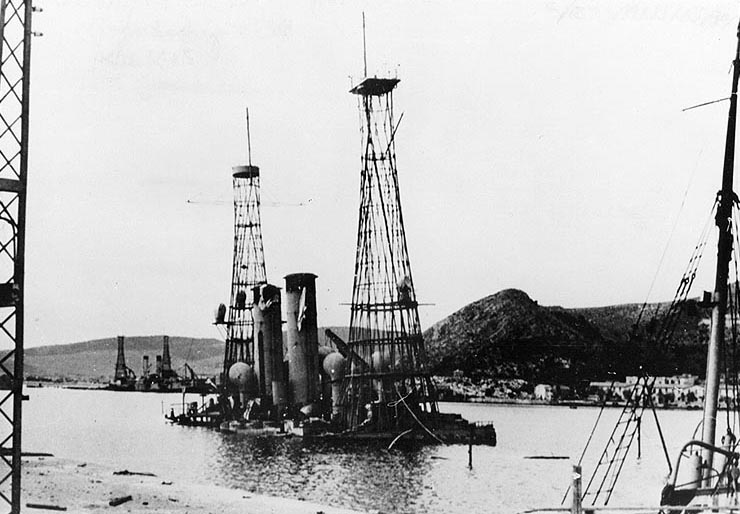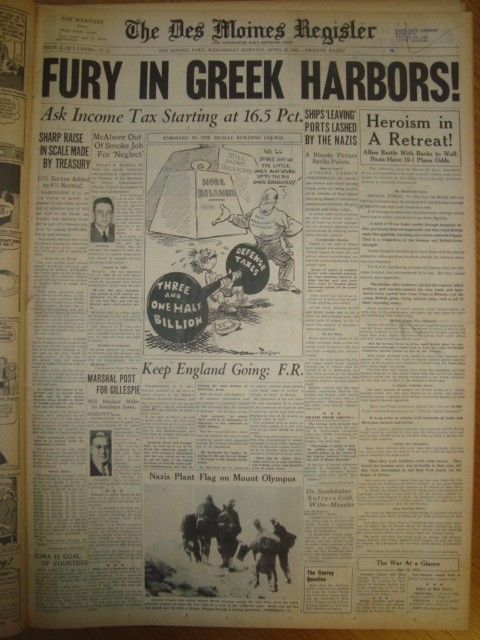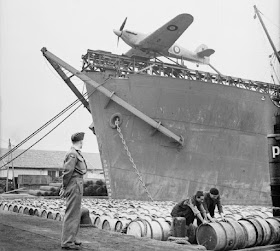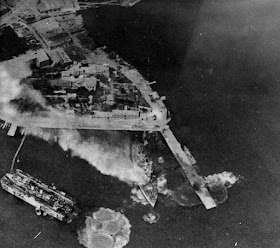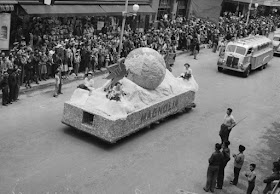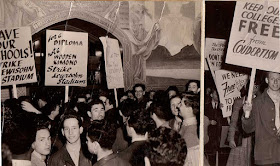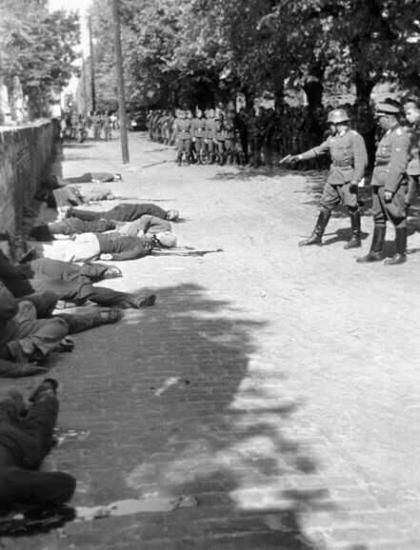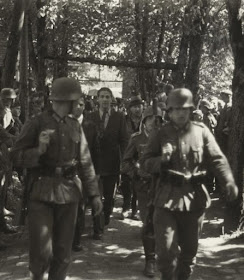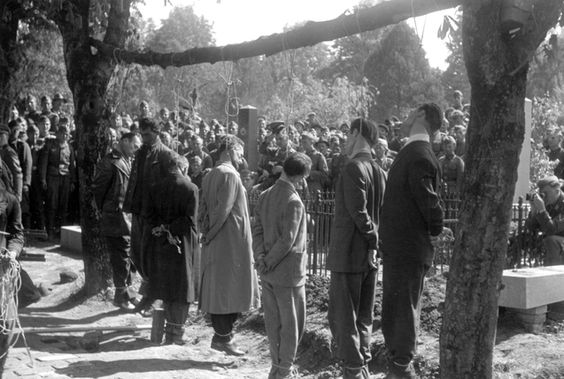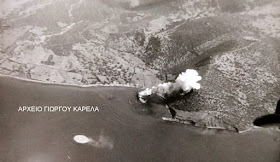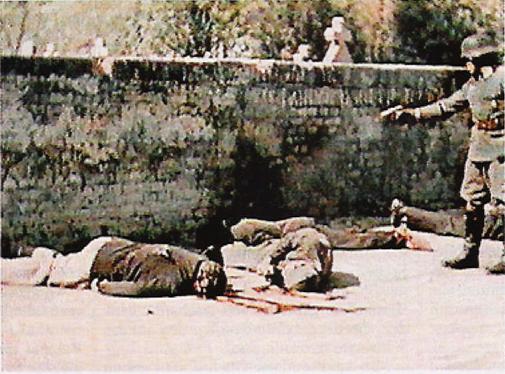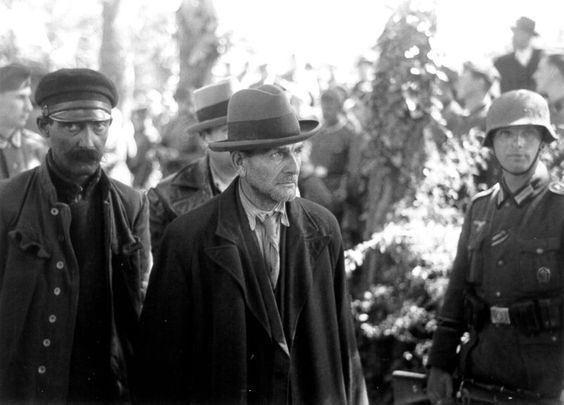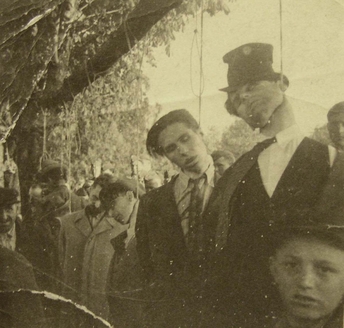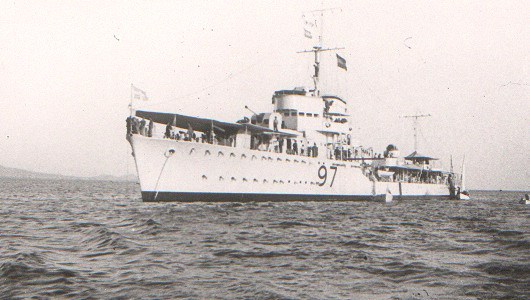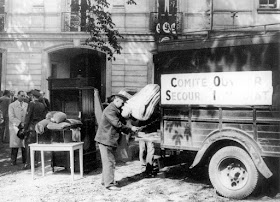Friday 25 April 1941
 |
| "German Panzer III tanks advance along a railway line in pursuit of retreating British troops in Greece between 25 and 30 April 1941." © IWM (HU 39517). |
Operation Marita: Today, 25 April 1941, is Anzac Day, and it marks another failed expedition in the Mediterranean. Allied troops ride south through Athens, having covered 100 miles in 12 hours.
The British evacuation from mainland Greece, Operation Demon, switches into high gear today. Transports from several Greek ports take thousands of British and Commonwealth soldiers to Crete and Egypt. Some 10,200 troops depart through the ports of Nafplio and Megara.
Troopships Thurland Castle and Pennland (once White Star Liner Pittsburgh) depart from Megara, escorted by anti-aircraft cruiser HMS Coventry and several destroyers. The 16,322-ton Red Star Liner Pennland is attacked by the Luftwaffe and badly damaged near San Giorgio Island. There are four deaths, while roughly 350 men are taken off by escorting destroyer Griffin. The Griffin then scuttles Pennland. Thurland Castle also is damaged. Australian destroyers HMAS Waterhen and Vendetta also take off troops. The Luftwaffe bombs and sinks Royal Navy troopship Pittsburgh in the Gulf of Athens, while troopship Ulster Prince sinks in the Aegean.
The Luftwaffe remains active above Greek waters:
Far to the west, the 1st SS Panzer Division Leibstandarte SS Adolf Hitler (LSSAH, still of brigade-size) races southward toward the Gulf of Patras. The battle in the west has become a race to the ports of the Peloponnesos which the British are using for Operation Demon (also ports in east Attica). The LSSAH moves along the western foothills of the Pindus Mountains, moving from Arta to Missolonghi. British Commonwealth troops are on the way to the Peloponnesos as well. The Germans drop Fallschirmjäger (paratroopers) to seize bridges over the Corinth Canal so that the following Wehrmacht ground troops can use them to continue their pursuit, but British artillery destroys the bridge. This places additional pressure on the LSSAH advance toward Patras.
The RAF has been in retreat for the past week, and today it leaves the mainland entirely. Air Commodore John D'Albiac establishes new headquarters on Crete at Heraklion. King George II of Greece also establishes new headquarters on Crete along with the rest of his government.
The Germans know that the Allies are retreating to Crete. General Kurt Student, commander (and founder) of the Fallschirmjäger, previously has suggested an airborne operation to take Crete, which, with the addition of the Operation Demon evacuees is becoming heavily fortified. Today, Adolf Hitler issues Fuhrer Directive No. 28, "Operation Mercury," which authorizes an invasion of Crete. The operation "will employ for the purpose, primarily, the airborne forces and the air forces stationed in the Mediterranean area," and is to occupy Crete "As a base for air warfare against Great Britain in the Eastern Mediterranean." Hitler cautions that "transport movements must not entail any delay in the mounting of 'Undertaking Barbarossa,'" seemingly directly addressing historians who will conclude that Operation Marita fatally delayed the invasion of the Soviet Union.
Iraq War: The Germans are bemused by the situation in Iraq. The Germans and Italy agree to provide financial assistance to Iraq's pro-Axis Rashid Ali government but have no other way of assisting them. The Iraqis have assembled troops around the British enclaves such as Habbaniyah airfield and the port of Basra, but show no signs of attacking. The British have occupied Mosul airfield and taken up defensive positions there.
European Air Operations: RAF Bomber Command raids coastal targets during the day with 27 aircraft, and Kiel after dark with 69 bombers. The Luftwaffe raids Sunderland with 57 bombers.
Visiting Australian Prime Minister Robert Menzies - who plans on returning to Australia in about a week - visits air raid shelters at King's Cross and Old Street. He writes in his diary:
U-103 (Kptlt. Viktor Schütze), on its 4th patrol off the coast of West Africa, torpedoes and sinks 2267 ton Norwegian freighter Polyana about 47 miles (76 km) southwest of the Cape Verde Islands. The ship, which had been part of Convoy OG-58 but was detached, sinks within a minute and there are no survivors of the international crew (19 Norwegians, 2 British, one Danish, one Tunisian, one Spanish, one Maltese). Captain Schütze missed with his first torpedo just before midnight on the 24th but the second does hit the freighter at 00:38 on the 25th.
The Luftwaffe bombs and damages 10,022-ton Norwegian tanker Polarsol about 180 miles off Myrdals Jokull Light, Iceland. The tanker makes it to Kames Bay in tow.
Royal Navy boarding vessel HMS Maron captures a French fishing boat, Joseph Elise, off Casablanca. The British put on board 15 sailors to take the ship to Gibraltar with the original French crew.
U-553 (Korvette Kpt. Karl Thurmann) has engine trouble and returns to base.
The Royal Navy learns that Spanish liner Marques De Commillas is traveling from New York to Spain carrying the Italian Naval Attache to Washington. The Admiralty sends light cruiser HMS Diomede from Bermuda to intercept it.
Convoy HX 123 departs from Halifax, bound for Liverpool.
Royal Navy submarine HMS P-3111 is laid down.
U-413 is laid down.
Battle of the Mediterranean: The Germans need some breathing room around Tobruk, and the British are determined not to let them have it. The Allies launch attacks all along the Tobruk perimeter that are repulsed, including one in the south at 03:00, a tank sortie at 12:30, an attack against the Italian Brescia Division at 15:15, and another attack in the south at 22:30. British artillery is proving to be quite effective, directed at times by an artillery spotter Lysander plane and outranges some of the Italian artillery.
The Luftwaffe attacks British armor south of Capuzzo, destroying some armored cars. At noon, Gruppe Herff attacks southeast of Capuzzo to try to give the southern German forces more of a cushion between the two Allied lines. The Germans make some progress through Halfaya Pass to Buq Buq at the cost of 7 dead and 10 wounded. British Middle East Commander General Archibald Wavell later claims that he allows his forces to withdraw in hopes of inducing the Afrika Korps to become over-extended.
The RAF bombs Derna airfield and town. The last two remaining Hurricanes operating out of Tobruk fly out to Alexandria, where there are only 13 Hurricane fighters. The only RAF plane remaining in Tobruk is a Lysander for artillery spotting.
Lieutenant General Erwin Rommel has been intending to launch a push all along the Tobruk perimeter. However, the "bad experience of the last days" with Italian troops (some recently have surrendered) forces the Germans to focus their attacks using the 5th Light Division and the 15th Panzer Division. The Luftwaffe Fliegerkorps X in Naples is ordered by Reichsmarschall Hermann Goering's headquarters to use air transport to bring 15th Panzer units from Naples to Derna.
Royal Navy submarine HMS Usk disappears on or about this date in the Mediterranean.
Royal Navy submarine HMS Upholder torpedoes and badly damages 5428 ton German/Italian troopship Antoniette Lauro just off Kerkenah, Tunisia. The captain manages to beach the ship in Kerkenah Bay.
The Royal Navy, pursuant to Operations Salient and Dunlop, puts to sea Force H from Gibraltar. Aircraft carrier HMS Ark Royal carries aircraft to fly off to Malta.
A convoy departs from Naples bound for Tripoli carrying elements of the 8th Panzerregiment in five ships. The convoy has a heavy Italian escort.
The Luftwaffe builds a new runway at Comiso, Sicily.
Battle of the Indian Ocean: German raider Pinguin scores another success, shelling and sinking 6828-ton British freighter Empire of Light north of the Seychelle Islands. The Germans take 70 prisoners.
Japanese destroyer Tanikaze is commissioned.
Spy Stuff: The British codebreakers at Bletchley Park in Operation Ultra learn about the German plans for Operation Hercules, the airborne assault on Crete from Luftwaffe transmissions. Of the three German services, the Luftwaffe is the newest and has the worst security in its radio transmissions. Throughout the war, Luftwaffe intercepts are a major source of British intelligence information, and that includes switching around evacuation beaches in Greece.
US/Greek Relations: Greek resistance has collapsed too quickly for the United States to send any aid, but today President Roosevelt issues a statement saying that the US still intends to send some. The situation in the Balkans has changed extremely rapidly, and it is difficult to keep track of the course of events.
Anglo/US Relations: British Prime Minister Winston Churchill sends President Roosevelt a telegram expressing appreciation for the extended Neutrality Patrols ordered in "Navy Western Hemisphere Defence Plan No. 2." He informs the President of the routes of British convoys currently at sea. He also says that he is "not at all discontented with Libya" because Tobruk "is exercising its powerful attractive influence."
German/Finnish Relations: The Germans inform General Heinrichs of the Finnish high command about Operation Barbarossa.
Australian Military: The Women’s Royal Australian Naval Service (WRANS) is established.
German Government: Hitler telephones Foreign Minister Ribbentrop and has him come to his command train Amerika near Graz, Austria. Ribbentrop later recalls:
British Government: Churchill visits Liverpool to see bomb damage.
US Government: Reports have been received that the German press has been supportive of Charles Lindbergh's recent America First speech in New York City. President Roosevelt, a firm interventionist, gives an interview about the current domestic controversy over aiding the British in the war against Germany:
Cambodia: The new king of Cambodia is Prince Norodom Sihanouk.
Spain: There are reports of 2500 German troops prowling the streets of Madrid posing as tourists. This has been a precursor to some German invasions.
Tahiti: The government of Tahiti allies itself with the Free French.
German Homefront: The German government has been critical of alcohol abuse, so German brewers consider making "light beer." The government also is critical of tobacco use, not for health reasons, but for its effect on morale and discipline.
Future History: Bertrand Tavernier is born in Lyon, France. He goes on to become a renowned filmmaker, actor, and director. He will win a BAFTA award in 1990 for "Life and Nothing But." He remains active in the film industry, releasing the documentary "Voyage à travers le cinéma français" in 2016.
April 1941
April 1, 1941: Rommel Takes BregaThe British evacuation from mainland Greece, Operation Demon, switches into high gear today. Transports from several Greek ports take thousands of British and Commonwealth soldiers to Crete and Egypt. Some 10,200 troops depart through the ports of Nafplio and Megara.
Troopships Thurland Castle and Pennland (once White Star Liner Pittsburgh) depart from Megara, escorted by anti-aircraft cruiser HMS Coventry and several destroyers. The 16,322-ton Red Star Liner Pennland is attacked by the Luftwaffe and badly damaged near San Giorgio Island. There are four deaths, while roughly 350 men are taken off by escorting destroyer Griffin. The Griffin then scuttles Pennland. Thurland Castle also is damaged. Australian destroyers HMAS Waterhen and Vendetta also take off troops. The Luftwaffe bombs and sinks Royal Navy troopship Pittsburgh in the Gulf of Athens, while troopship Ulster Prince sinks in the Aegean.
The Luftwaffe remains active above Greek waters:
Greek yacht Thraki sunk off MyliThe German 6th Mountain Division (Generalmajor Ferdinand Schörner) and elements of the 5th Panzer Division advance through the pass at Thermopylae, the defending Australian and New Zealand rearguard troops having withdrawn to Thebes.
Greek freighter Thraki sunk at Porto Heli
1722-ton Greek freighter Sofia sunk off Megara
128-ton Greek coaster Anna Maria sunk off Vostizza
602-ton Greek freighter Marios sunk off Aigio
1570-ton Greek freighter George A. Dracoulis sunk off Chalkis
982-ton Greek freighter Thraki sunk off Port Kheli
Greek Navy torpedo boat Kyzikos sunk off Salamis
1171-ton Greek freighter Dimitrios Nomikos sunk off Karystos, Euboea (later raised by the Germans and repaired)
 |
| German troops in Thermopylae Pass, 25 April 1941. |
The RAF has been in retreat for the past week, and today it leaves the mainland entirely. Air Commodore John D'Albiac establishes new headquarters on Crete at Heraklion. King George II of Greece also establishes new headquarters on Crete along with the rest of his government.
The Germans know that the Allies are retreating to Crete. General Kurt Student, commander (and founder) of the Fallschirmjäger, previously has suggested an airborne operation to take Crete, which, with the addition of the Operation Demon evacuees is becoming heavily fortified. Today, Adolf Hitler issues Fuhrer Directive No. 28, "Operation Mercury," which authorizes an invasion of Crete. The operation "will employ for the purpose, primarily, the airborne forces and the air forces stationed in the Mediterranean area," and is to occupy Crete "As a base for air warfare against Great Britain in the Eastern Mediterranean." Hitler cautions that "transport movements must not entail any delay in the mounting of 'Undertaking Barbarossa,'" seemingly directly addressing historians who will conclude that Operation Marita fatally delayed the invasion of the Soviet Union.
Iraq War: The Germans are bemused by the situation in Iraq. The Germans and Italy agree to provide financial assistance to Iraq's pro-Axis Rashid Ali government but have no other way of assisting them. The Iraqis have assembled troops around the British enclaves such as Habbaniyah airfield and the port of Basra, but show no signs of attacking. The British have occupied Mosul airfield and taken up defensive positions there.
 |
| "Aircraft of Fighter Command displayed at Grangemouth, Stirlingshire, during a visit by Scottish newspaper correspondents. In the foreground is a Hawker Hurricane Mark I of No. 315 Polish Fighter Squadron RAF based at Speke, Liverpool; in the background a Bristol Blenheim Mark IF of No. 23 Squadron RAF based at Ford, Sussex, while, overhead, three Supermarine Spitfires, flown by the flying instructors of No. 58 Operational Training Unit based at Grangemouth, prepare to give a flying demonstration." 25 April 1941. © IWM (H 9179). |
Visiting Australian Prime Minister Robert Menzies - who plans on returning to Australia in about a week - visits air raid shelters at King's Cross and Old Street. He writes in his diary:
Indescribably pathetic. Malodorous, or rather stuffy. Bunks of wire arranged in tiers of 2 or 3 along the platforms and in the recesses. Canteen arranged. Little children staggering in beneath bundles of bed-clothes. Old women & men, going down to their nightly burial, for this happens every night, and not just when the alert blows. These people are "deep shelter conscious." They are drab, dreary, and look infinitely sad - standing in the queues for their places, for which they have tickets. Squatting on the metal treads of narrow stairs, there to hunch up asleep all night. Stretched out in a bunk, with electric trains swishing and roaring past every few minutes.Battle of the Atlantic: Hitler has instructed Konteradmiral Karl Dönitz to avoid all provocations with the US Navy. Doenitz duly communicates this to his subordinates today.
U-103 (Kptlt. Viktor Schütze), on its 4th patrol off the coast of West Africa, torpedoes and sinks 2267 ton Norwegian freighter Polyana about 47 miles (76 km) southwest of the Cape Verde Islands. The ship, which had been part of Convoy OG-58 but was detached, sinks within a minute and there are no survivors of the international crew (19 Norwegians, 2 British, one Danish, one Tunisian, one Spanish, one Maltese). Captain Schütze missed with his first torpedo just before midnight on the 24th but the second does hit the freighter at 00:38 on the 25th.
The Luftwaffe bombs and damages 10,022-ton Norwegian tanker Polarsol about 180 miles off Myrdals Jokull Light, Iceland. The tanker makes it to Kames Bay in tow.
Royal Navy boarding vessel HMS Maron captures a French fishing boat, Joseph Elise, off Casablanca. The British put on board 15 sailors to take the ship to Gibraltar with the original French crew.
U-553 (Korvette Kpt. Karl Thurmann) has engine trouble and returns to base.
The Royal Navy learns that Spanish liner Marques De Commillas is traveling from New York to Spain carrying the Italian Naval Attache to Washington. The Admiralty sends light cruiser HMS Diomede from Bermuda to intercept it.
Convoy HX 123 departs from Halifax, bound for Liverpool.
Royal Navy submarine HMS P-3111 is laid down.
U-413 is laid down.
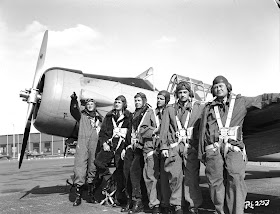 |
| "This photo of American airmen, all in the rank of leading aircraftman, was taken at RCAF Uplands, near Ottawa, on April 25, 1941. From left to right: J.G. Magee of Washington, D.C.; A.C. Young of Cleveland, Ohio; C.F. Gallicher of Tulsa, Oklahoma; C.G. Johnston of Chicago, Illinois; A.B. Cleaveland of Springfield, Illinois; and O.N. Leatherman of Lima, Ohio. PHOTO: DND Archives, PL-2753." Source: Royal Canadian Air Force. John Magee is the author of the famous poem, "High Flight," which has become the Air Force's official poem. It begins, "Oh! I have slipped the surly bonds of Earth." |
The Luftwaffe attacks British armor south of Capuzzo, destroying some armored cars. At noon, Gruppe Herff attacks southeast of Capuzzo to try to give the southern German forces more of a cushion between the two Allied lines. The Germans make some progress through Halfaya Pass to Buq Buq at the cost of 7 dead and 10 wounded. British Middle East Commander General Archibald Wavell later claims that he allows his forces to withdraw in hopes of inducing the Afrika Korps to become over-extended.
The RAF bombs Derna airfield and town. The last two remaining Hurricanes operating out of Tobruk fly out to Alexandria, where there are only 13 Hurricane fighters. The only RAF plane remaining in Tobruk is a Lysander for artillery spotting.
Lieutenant General Erwin Rommel has been intending to launch a push all along the Tobruk perimeter. However, the "bad experience of the last days" with Italian troops (some recently have surrendered) forces the Germans to focus their attacks using the 5th Light Division and the 15th Panzer Division. The Luftwaffe Fliegerkorps X in Naples is ordered by Reichsmarschall Hermann Goering's headquarters to use air transport to bring 15th Panzer units from Naples to Derna.
Royal Navy submarine HMS Usk disappears on or about this date in the Mediterranean.
Royal Navy submarine HMS Upholder torpedoes and badly damages 5428 ton German/Italian troopship Antoniette Lauro just off Kerkenah, Tunisia. The captain manages to beach the ship in Kerkenah Bay.
The Royal Navy, pursuant to Operations Salient and Dunlop, puts to sea Force H from Gibraltar. Aircraft carrier HMS Ark Royal carries aircraft to fly off to Malta.
A convoy departs from Naples bound for Tripoli carrying elements of the 8th Panzerregiment in five ships. The convoy has a heavy Italian escort.
The Luftwaffe builds a new runway at Comiso, Sicily.
 |
| US Secretary of State Cordell Hull emphasizes the need for US protection of war convoys, 25 April 1941 LA Times. |
Japanese destroyer Tanikaze is commissioned.
Spy Stuff: The British codebreakers at Bletchley Park in Operation Ultra learn about the German plans for Operation Hercules, the airborne assault on Crete from Luftwaffe transmissions. Of the three German services, the Luftwaffe is the newest and has the worst security in its radio transmissions. Throughout the war, Luftwaffe intercepts are a major source of British intelligence information, and that includes switching around evacuation beaches in Greece.
US/Greek Relations: Greek resistance has collapsed too quickly for the United States to send any aid, but today President Roosevelt issues a statement saying that the US still intends to send some. The situation in the Balkans has changed extremely rapidly, and it is difficult to keep track of the course of events.
Anglo/US Relations: British Prime Minister Winston Churchill sends President Roosevelt a telegram expressing appreciation for the extended Neutrality Patrols ordered in "Navy Western Hemisphere Defence Plan No. 2." He informs the President of the routes of British convoys currently at sea. He also says that he is "not at all discontented with Libya" because Tobruk "is exercising its powerful attractive influence."
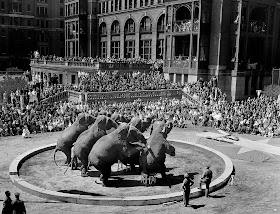 |
| A performance attended by 5000 people by Ringling Brothers and Barnum & Bailey Circus for patients of Bellevue Hospital, New York City, 25 April 1941 (AP via Yorkvilleonthenet). |
Australian Military: The Women’s Royal Australian Naval Service (WRANS) is established.
German Government: Hitler telephones Foreign Minister Ribbentrop and has him come to his command train Amerika near Graz, Austria. Ribbentrop later recalls:
He said that all the military Intelligence reaching him confirmed that the Soviet Union was preparing in a big way along the entire front from the Baltic to the Black Sea. He was not willing to be taken by surprise once he had recognized a danger. Moscow’s pact with the Serbian putschist government was a downright provocation to Germany and a clear departure from the German-Russian treaty of friendship. In this conversation I recommended that he listen first to our ambassador [to Moscow], Count [Werner von der] Schulenburg.... I wanted to try a diplomatic settlement with Moscow first. But Hitler refused any such attempt and forbade me to discuss the matter with anybody; no amount of diplomacy could change the Russian attitude, as he now recognized it, but it might cheat him of the important tactical element of surprise when he attacked. He requested me to put on a show of complete support for his view, and explained that one day the West would understand why he had rejected the Soviet demands and attacked the East.Hitler also talks to one of his aides, Colonel Walter Scherff, asking him, "What can you, a war historian, tell me about preventative wars?" Scherff recalls later that he tells Hitler:
Only somebody with the deepest sense of responsibility can take such a decision, and then only after looking at it from every possible angle. Because he will be risking immense dangers in starting such a war.Scherff recalls that Hitler states:
Britain will just have to climb down, once we have defeated her last ally on the continent. If she does not, we shall destroy her, with all the means that we shall have when all Europe as far as the Urals is at our feet.These sentiments echo those expressed by Hungarian leader Admiral Horthy during his visit on the 24th - that defeating the Soviet Union is the way to defeat Great Britain and end the war in the West.
 |
| Winston Churchill addressing merchant ship crews in Liverpool, 25 April 1941. |
US Government: Reports have been received that the German press has been supportive of Charles Lindbergh's recent America First speech in New York City. President Roosevelt, a firm interventionist, gives an interview about the current domestic controversy over aiding the British in the war against Germany:
There are people in this country ... [who] say out of one side of the mouth, 'No, I don't like it, I don't like dictatorship,' and then out of the other side of the mouth, 'Well, it's going to beat democracy, it's going to defeat democracy, therefore I might just as well accept it.' Now, I don't call that good Americanism ... Well, Vallandigham, as you know, was an appeaser. He wanted to make peace from 1863 on because the North 'couldn't win.' Once upon a time there was a place called Valley Forge and there were an awful lot of appeasers that pleaded with Washington to quit, because he 'couldn't win.' Just because he 'couldn't win.' See what Tom Paine said at that time in favor of Washington keeping on fighting!The President appears to be comparing supporters of the America First Committee with the Copperheads who opposed the US Civil War. It is a thinly veiled attack on Charles Lindbergh, the leading voice of the America First Committee. Lindbergh reads this and decides to resign his commission in the US Army Air Corps Reserve.
Cambodia: The new king of Cambodia is Prince Norodom Sihanouk.
Spain: There are reports of 2500 German troops prowling the streets of Madrid posing as tourists. This has been a precursor to some German invasions.
Tahiti: The government of Tahiti allies itself with the Free French.
German Homefront: The German government has been critical of alcohol abuse, so German brewers consider making "light beer." The government also is critical of tobacco use, not for health reasons, but for its effect on morale and discipline.
Future History: Bertrand Tavernier is born in Lyon, France. He goes on to become a renowned filmmaker, actor, and director. He will win a BAFTA award in 1990 for "Life and Nothing But." He remains active in the film industry, releasing the documentary "Voyage à travers le cinéma français" in 2016.
April 1941
April 2, 1941:Rommel Takes Agedabia
April 3, 1941: Convoy SC-26 Destruction
April 4, 1941: Rommel Takes Benghazi
April 5, 1941: Rommel Rolling
April 6, 1941: Operation Marita
April 7, 1941: Rommel Takes Derna
April 8, 1941: Yugoslavia Crumbling
April 9, 1941: Thessaloniki Falls
April 10, 1941: USS Niblack Attacks
April 11, 1941: Good Friday Raid
April 12, 1941: Belgrade and Bardia Fall
April 13, 1941: Soviet-Japanese Pact
April 14, 1941: King Peter Leaves
April 15, 1941: Flying Tigers
April 16, 1941: Battle of Platamon
April 17, 1941: Yugoslavia Gone
April 18, 1941: Me 262 First Flight
April 19, 1941: London Smashed
April 20, 1941: Hitler's Best Birthday
April 21, 1941: Greek Army Surrenders
April 22, 1941: Pancevo Massacre
April 23, 1941: CAM Ships
April 24, 1941: Battle of Thermopylae
April 25, 1941: Operation Demon
April 26, 1941: Operation Hannibal
April 27, 1941: Athens Falls
April 28, 1941: Hitler Firm about Barbarossa
April 29, 1941: Mainland Greece Falls
April 30, 1941: Rommel Attacks
2020

